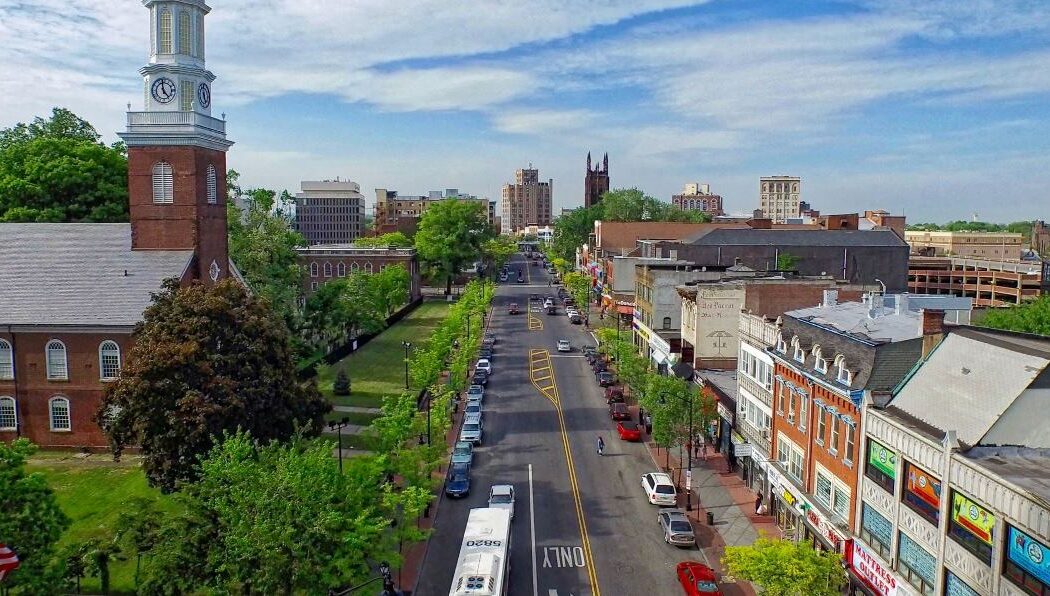On September 27, 2023, while Republican extremists were working hard to shut down the United States government, a bipartisan committee had no problem agreeing that the federal program supporting the cleanup, reuse, and revitalization of contaminated sites in communities across the nation needed to continue.
This is hardly surprising, given that the Brownfields program is probably the single most successful government initiative the history of the nation, when measured by return of investment (ROI).
The ROI runs around 18:1, meaning that for every federal dollar invested, the private sector invests 18. But that number runs as high as 44:1 in states with exceptionally well-run programs, such as Minnesota. Add in local public investment, and that number runs much higher.
The Senate Environment and Public Works (EPW) Committee unanimously passed the Brownfields Reauthorization Act of 2023, legislation authored by U.S. Senator Shelley Moore Capito (R-W.Va.), Ranking Member of the EPW Committee, and Tom Carper (D-Del.), Chairman of the EPW Committee, to reauthorize the Brownfields program, which supports redevelopment efforts at legacy (mostly industrial) sites in communities.
“The Brownfields program has created success story after success story in communities across the United States, including West Virginia. The Brownfields Reauthorization Act of 2023 would further support these public-private partnerships that are critical for the economic redevelopment of legacy industrial sites. From an environmental and economic standpoint, Brownfield grants have benefitted both urban and rural areas, and I’m thrilled the EPW Committee continued our track record of bipartisan solutions by advancing this important legislation today,” Capito said.
A brownfield is a property for which the expansion, redevelopment, or reuse may be complicated by the presence or potential presence of a hazardous substance, pollutant, or contaminant.
Brownfields decrease property values, depress economic activity, foster increased crime, and present ongoing environmental and public health risks to nearby communities.
“For years, EPA’s Brownfields program has turned the adversity of industrial contamination into economic opportunity for communities across our nation, including in Delaware,” Carper said.
“The Brownfields Reauthorization Act would help more communities benefit from this successful program, and I thank Senator Capito, as well as our EPW Committee colleagues, for their work to advance this bipartisan legislation,” he added.
Since first being authorized in 2002, the Brownfields program has become a resounding success story for both the economy and the environment.
“I can’t say this strongly enough – the Brownfields Program is one of the most useful and effective federal programs for helping to revitalize America’s communities by putting abandoned or blighted property back to productive use. For city leaders, brownfields sites represent unrealized potential – an opportunity to create jobs, revitalize neighborhoods, increase the tax base, and reuse and enhance already existing infrastructure in a more sustainable manner,” said the mayor of Elizabeth, New Jersey, J. Christian Bollwage, testifying before the Senate committee.
“That’s exactly what we’ve done in my city through a variety of brownfield redevelopment projects along our waterfront, near the train station, and throughout the community. We’ve brought new market rate and affordable housing and job training opportunities. We’ve revitalized neighborhoods and provided new opportunities for long-term economic growth. This story of success is one that is replicated in hundreds of communities across the county. The Brownfields Program is a win-win-win: for our local governments, our environment, and our economy,” he concluded.
The program has benefitted West Virginia with more than $41 million in Brownfield grants being awarded to the state since 2005.
Those grants were leveraged into an additional $1.6 billion in public and private investment (a 39:1 ROI) while also creating more than 5400 new jobs.
Photo of Elizabeth, New Jersey courtesy of the City of Elizabeth.
See the full text of the Brownfields Reauthorization Act of 2023.

